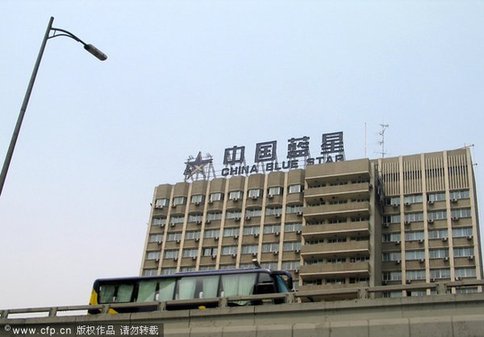
The first BlueStar summer camp opened in 1989 with only 11 campers. During the past 20 years, the camp has enjoyed an enormous expansion, in line with the growth of BlueStar Group itself. This year, the attendee number amounted to 1,100 including employees' children from BlueStar's headquarters, as well as its subsidiary companies at home and abroad.
Together with the rapid expansion in numbers, BlueStar has also upgraded the activities on offer at the event. This has built on the sightseeing and touring base of the early camps and now includes a whole new raft of educational and training opportunities. These have been developed to deliver a more professional learning and leisure package to the camp's young attendees.
For BlueStar, the summer camp is not only an annual opportunity for children to play and learn, but also an important part of its initiative in building the corporate culture of the company, one of China's leading chemical processors.
In fact, the BlueStar's methodology is now considered as exemplary in China and has been dubbed as the "BlueStar Pattern".
Education experts now speak highly of the BlueStar camp, regarding it is not only as a pioneer in the Chinese summer camp field, but also as a prime example of how to transmit corporate culture across generations.
There is no doubt that the participation of overseas members this year marks the true internationalization of the camp and marks a new milestone in its history.
According to Huang Fang, vice director of Peking University's Research Center of Chinese Enterprise Management: "The global launch of the BlueStar summer camp paves the way to a new form of overseas development and cultural integration for Chinese enterprises."
Early in 2006, BlueStar successfully took over three overseas businesses, including Adisseo and Rhodia in France, and Qenos in Australia. According to Ren Jianxin, all the acquired companies are in an excellent trading condition now and have hit record highs in production.
He said: "This success is partly due to good cross-cultural communication among domestic staff, overseas employees and local residents. This is very important for transnational enterprises."
A number of experts hold similar opinions. According to Huang Fang, transnational enterprises are not only a matter of joint economies, but are also about a fusion of different cultures.
Huang says: "It's very important for the future development of these enterprises to engender a seamless combination of cultures, ideas and traditions. For Chinese enterprises extending into foreign markets, cultural mingling is of great significance - not only in terms of creating combined businesses but also with regard to the sustainable development of corporate culture."
Ren, himself, is entirely in sympathy with Huang's sentiments: "In order to avoid the cultural gap encountered by many Chinese businesses when they extend their activities abroad, we have adopted a number of initiatives aimed at nurturing tolerance and developing mutually-beneficial strategies. The globalized BlueStar summer camp is just one of them.
"It has already established itself as a significant means of building our corporate culture over the past 20 years, and will certainly contribute further to our international corporate cultural integration."
(China Daily July 21, 2009)